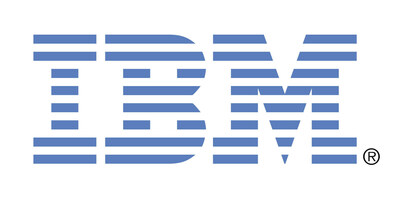IBM Study: AI Spending Expected to Surge 52% Beyond IT Budgets as Retail Brands Embrace Enterprise-Wide Innovation
Rhea-AI Summary
IBM released a global study revealing significant AI investment trends in retail and consumer products companies. The report shows that 81% of executives and 96% of their teams are already using AI substantially, with companies projecting to allocate 3.32% of revenue to AI by 2025 - equivalent to $33.2M annually for a $1B company.
Key findings indicate AI spending outside traditional IT could surge by 52% in the next year. Companies plan to expand AI usage in sophisticated areas like integrated business planning, expecting an 82% increase by 2025. Customer service AI applications could grow by 236% in the next 12 months, with 55% involving human-AI collaboration.
The study also highlights a significant governance gap: while 87% of executives claim to have AI governance frameworks, less than 25% have fully implemented risk management tools. Companies expect 31% of employees will need AI-related reskilling within a year, rising to 45% within three years.
Positive
- Projected 52% increase in AI spending outside IT operations
- Expected allocation of 3.32% of revenue to AI by 2025
- 236% growth projected in AI customer service applications
- 82% increase planned in integrated business planning AI usage
- AI ecosystem platform adoption expected to grow from 52% to 89% in three years
Negative
- Less than 25% have implemented AI risk management tools
- 31% of workforce requires immediate AI skill development
- Significant investment needed for employee reskilling (45% within three years)
News Market Reaction – IBM
On the day this news was published, IBM gained 0.58%, reflecting a mild positive market reaction.
Data tracked by StockTitan Argus on the day of publication.
- The report found that
81% of surveyed executives and96% of their teams are already using AI to a moderate or significant extent - Executives indicate they want to expand into more sophisticated AI use cases, such as integrated business planning where they plan to increase usage by
82% in 2025
By 2025, retail and consumer products companies surveyed say they plan to allocate an average of
- Rapid Adoption Across the Enterprise: The report found that
81% of surveyed executives and96% of their team are already using AI to a moderate or significant extent. Executives indicate they want to expand AI usage to more sophisticated use cases, such as integrated business planning where they plan to increase usage by82% in 2025. - Workforce Transformation: Executives surveyed expect that
31% of employees will need to learn new skills to work with AI in the next year, increasing to45% within three years. AI use in customer service, particularly for personalized responses and follow-ups, could grow by236% in the next 12 months when compared to the prior year based on survey responses. Notably, responses indicate that55% of these improvements are expected to involve human-AI collaboration, while only30% would be fully automated—highlighting the need to equip employees for seamless AI integration. - AI Ecosystem Platforms: Investment in ecosystem platforms—tools that facilitate exchange of data and AI models—could skyrocket. Respondants indicated they expect growth from
52% today to89% within three years as their companies look to blend AI capabilities with business and technology partners to accelerate innovation and drive efficiencies. - AI Governance Gap: Despite
87% of surveyed executives claiming to have clear AI governance frameworks, fewer than25% have fully implemented and continuously review tools to manage risks like bias, transparency, and security. This reveals a critical gap in operational oversight.
"AI is no longer just a tool; it's a strategic imperative," said Dee Waddell, Global Industry Leader, Consumer, Travel & Transportation Industries at IBM. "Retail and consumer product companies are at a tipping point where embedding AI across their operations can help define not just productivity gains, but the future of brand relevance, engagement and trust."
The report emphasizes that successful brands can evolve from viewing AI as merely a productivity booster to positioning it as a core driver of enterprise innovation. Achieving this transformation will require rethinking traditional governance and reskilling strategies. Retailers should tailor AI initiatives to align with their brand priorities and collaborate with strategic partners, including start-ups and technology companies. Equally important is breaking down silos between finance, technology, and business leaders. By fostering cross-functional collaboration, these stakeholders can jointly build strong business cases that demonstrate how AI can help deliver a long-term competitive advantage.
Connect with IBM at NRF 2025: AI is taking center stage for IBM at NRF'25. Join us as we delve into how the technology is enhancing everything from customer engagement and personalization to operational efficiency. We'll share innovative examples in marketing, supply chain management, and sustainability. IBM industry experts will be at Booth #4639. Stay updated via our NRF webpage. #NRF2025
For more information and to access the full report, visit here.
Methodology
The IBM Institute for Business Value (IBM IBV), in cooperation with Oxford Economics, surveyed 1,500 global retail and consumer products executives in 15 countries in Q3 2024.
Participants were asked a range of questions in various formats (such as multiple choice numerical and Likert scale). They were asked about their organization's expectations, results, concerns, and barriers for scaling or planning to scaleAI/Gen AI within the enterprise and across their ecosystem partners.
To accomplish this, the IBM IBV ran a series of contrast analyses, including pairwise comparisons and data classification using hierarchical clustering highlighting results differences as shown in this report. Significance level for all analyses was set
at (p < 0.05) level.
About IBM
IBM is a leading provider of global hybrid cloud and AI, and consulting expertise. We help clients in more than 175 countries capitalize on insights from their data, streamline business processes, reduce costs and gain the competitive edge in their industries. More than 4,000 government and corporate entities in critical infrastructure areas such as financial services, telecommunications and healthcare rely on IBM's hybrid cloud platform and Red Hat OpenShift to affect their digital transformations quickly, efficiently and securely. IBM's breakthrough innovations in AI, quantum computing, industry-specific cloud solutions and consulting deliver open and flexible options to our clients. All of this is backed by IBM's long-standing commitment to trust, transparency, responsibility, inclusivity and service. Visit www.ibm.com for more information.
Media Contact:
Kelsey Lazio
Global External Relations Lead, Consumer and Retail, IBM
Kelsey.lazio@ibm.com
![]() View original content to download multimedia:https://www.prnewswire.com/news-releases/ibm-study-ai-spending-expected-to-surge-52-beyond-it-budgets-as-retail-brands-embrace-enterprise-wide-innovation-302343509.html
View original content to download multimedia:https://www.prnewswire.com/news-releases/ibm-study-ai-spending-expected-to-surge-52-beyond-it-budgets-as-retail-brands-embrace-enterprise-wide-innovation-302343509.html
SOURCE IBM








